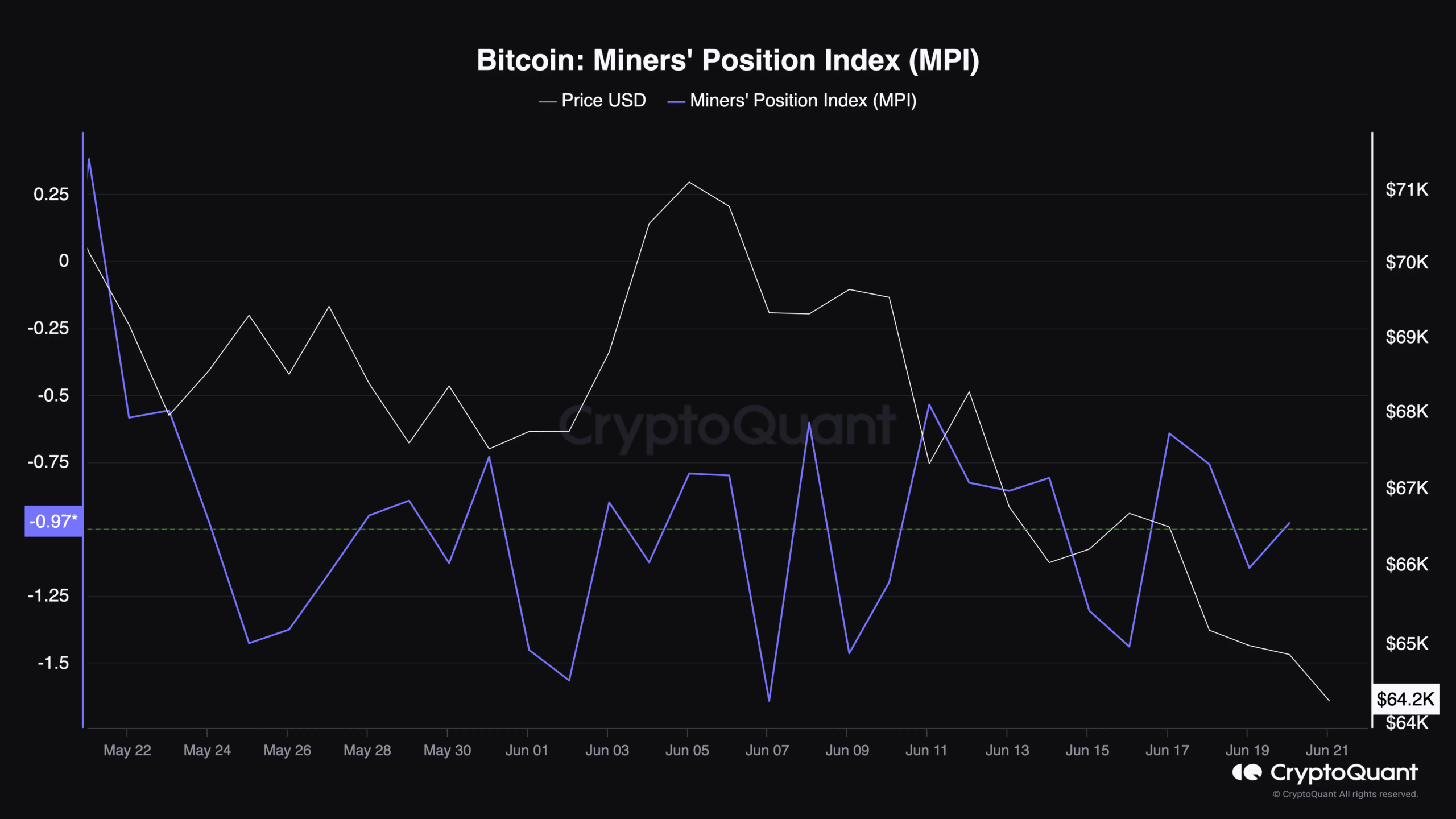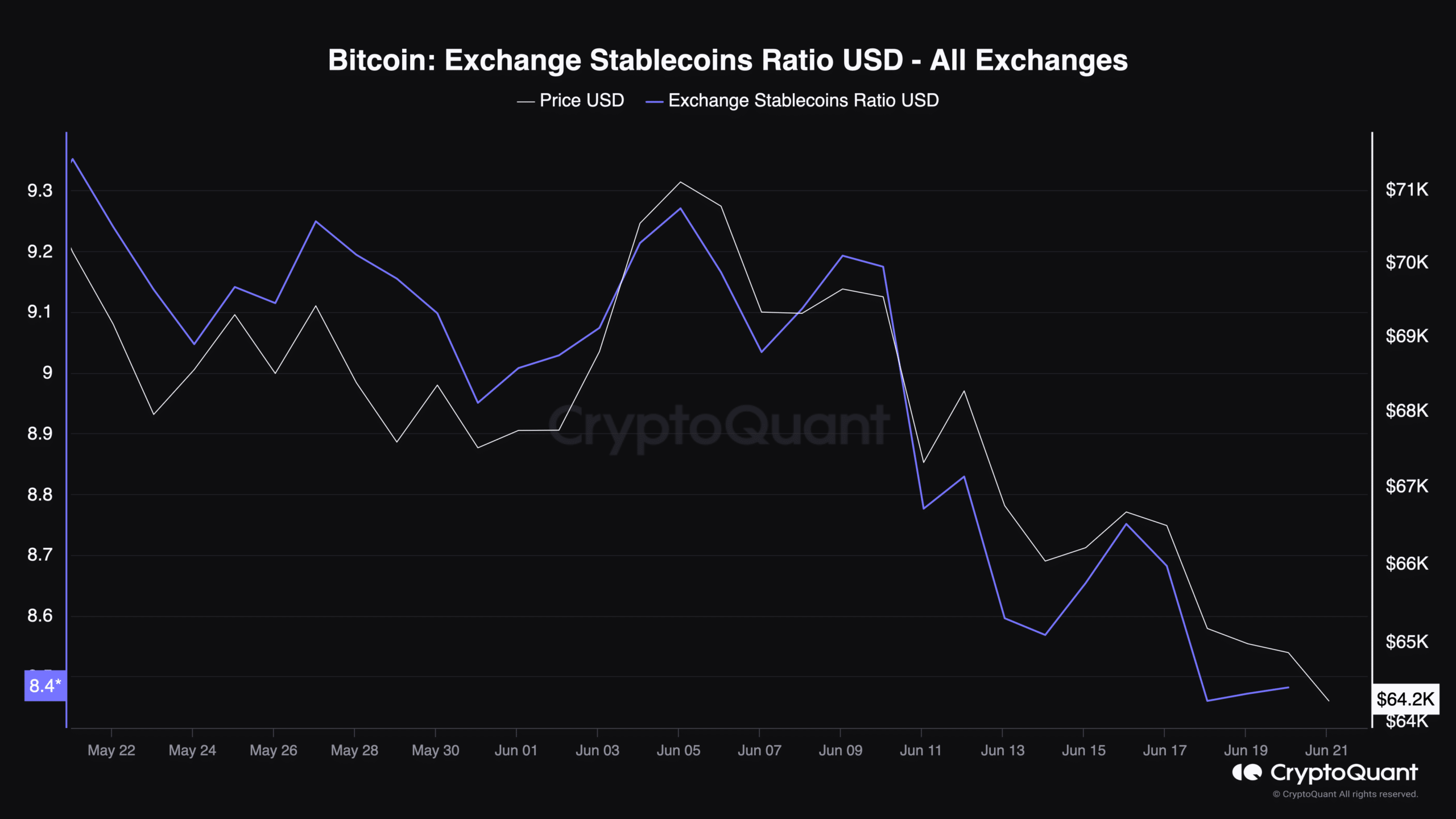- Bitcoin’s recovery may depend on the exit of inefficient miners and the stabilization of the hash rate.
- Willy Woo links current market trends with Bitcoin’s potential rebound post-halving and summer market lulls.
Bitcoin’s [BTC] trajectory in 2024 has been marked by significant volatility, Despite reaching an all-time high of $73,737 earlier in the year, Bitcoin’s value has significantly retreated, currently standing around $64,625.
This decline which is approximately 12.4% from its peak has sparked discussions among market analysts about the potential for a rebound.
BTC to rebound soon?
Willy Woo, a renowned cryptocurrency analyst, took to social media, X, to discuss the pivotal factors that might signal the beginning of Bitcoin’s recovery.
Central to Woo’s analysis was the phenomenon of miner capitulation, which refers to the exit of less efficient miners from the market due to unprofitability.
According to Woo, the price recovery for Bitcoin could start once these weaker miners have exited the market, allowing the hash rate—a measure of the total computational power used in mining and processing—to stabilize and recover.
Notably, miner capitulation occurs when Bitcoin’s halving—a pre-programmed reduction in the rewards given to Bitcoin miners—renders old hardware or high-cost operations unfeasible, pushing inefficient miners towards bankruptcy.
As explained by Woo, this process is painful but necessary for the market’s long-term health, as it purges inefficiencies and consolidates mining operations to more capable participants.
These dynamics are critical as they reduce the pressure from constant selling by miners needing to cover operational costs, potentially paving the way for price stabilization and subsequent increases.


Source: Willy Woo on X
Historically, post-halving periods have been followed by significant price increases after initial volatility. Woo draws parallels with previous cycles in 2017 and 2020, noting that current market conditions mirror these earlier phases but with a delayed recovery.
Particularly, Woo explained that the recovery timeline can vary, as seen in past cycles.
For instance, the 2017 recovery spanned 24 days during the slow summer months, a stark contrast to the 2020 recovery which lasted only 8 days amidst the market chaos triggered by the COVID-19 pandemic.
Now, it’s been over two months (61 days) since the last halving, and the market is still awaiting the capitulation phase’s completion, which Woo suggests could align with traditional slow financial periods such as the summer months when many investors are less active.


Source: Willy Woo on X
Is Bitcoin ready?
To further understand Bitcoin’s potential for recovery, AMBCrypto looked at specific metrics like the Miner Position Index (MPI) and the Exchange Stablecoins Ratio USD.
Currently, the MPI stands at -0.97, indicating a potential decrease in miner selling pressure, which could be bullish for Bitcoin prices.


Source: CryptoQuant
Meanwhile, the Exchange Stablecoins Ratio USD, now at 8.48, has decreased slightly by 0.97% in the last day.
This ratio assesses the buying power potential on exchanges, with lower values generally indicating stronger potential buying pressure, which could drive price increases.


Source: CryptoQuant
Read Bitcoin’s [BTC] Price Prediction 2024-25
Despite these technical indicators, the real-world impact on traders, especially those in short positions, remains significant.
With nearly $1.84 million at risk of liquidation should Bitcoin surge past the $70k mark again, the stakes are high.


